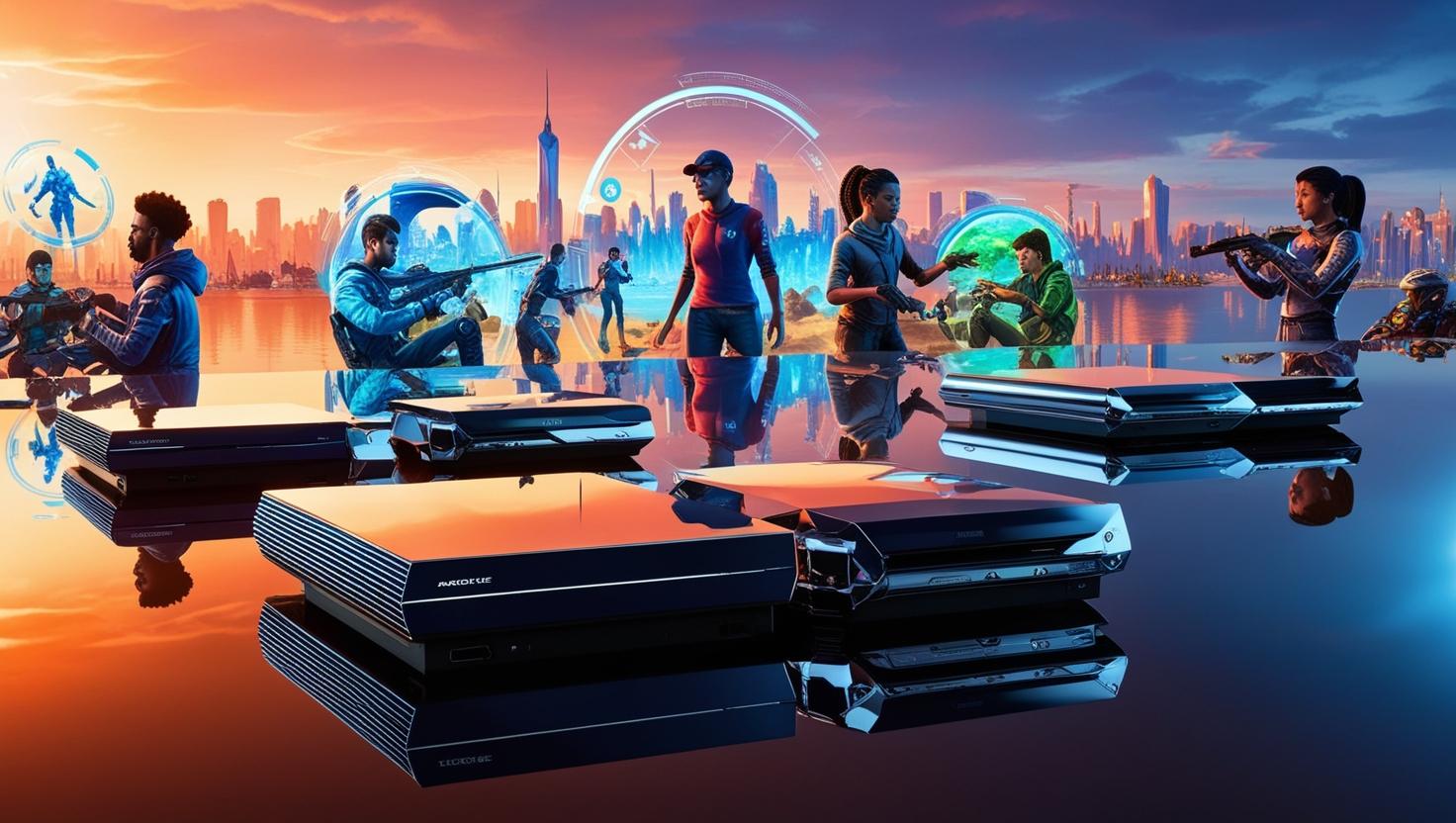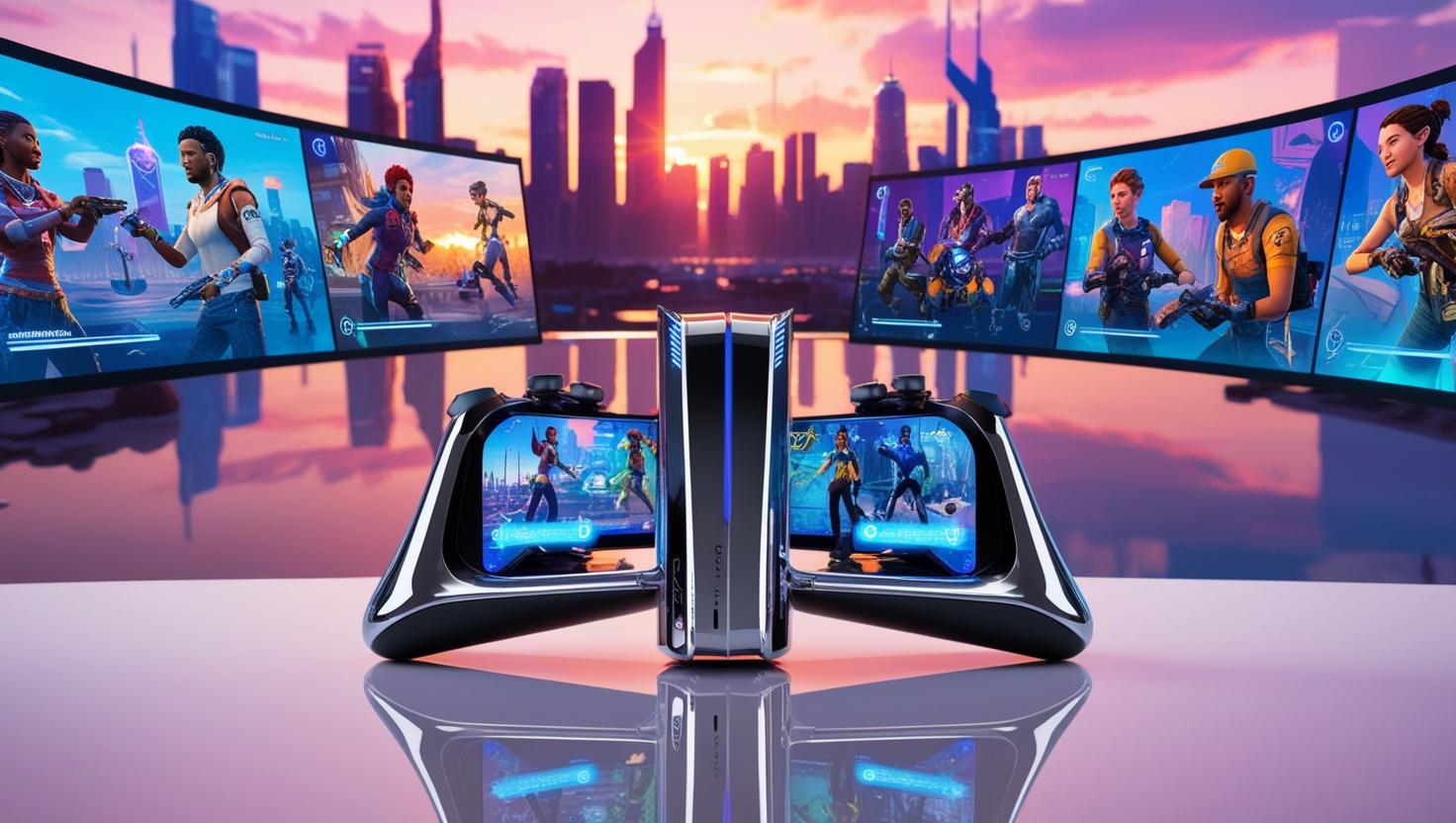As the world advances, so does the technology that shapes our daily lives. The realm of video games is no exception. With each passing year, we witness incredible innovations that continue to redefine what is possible in the gaming industry. Looking beyond the horizon, we can catch a glimpse of the game-changing technologies that promise to revolutionize the future of video games, setting new standards and opening doors to unparalleled experiences.
One such technology that holds immense potential is virtual reality (VR). While VR has made strides, it is still in its nascent stages. However, with the continuous development of powerful and affordable VR headsets, we are inching closer to a reality where we can fully immerse ourselves in virtual worlds. Imagine battling dragons or exploring ancient ruins as if you were physically present in these fantastical realms. The integration of VR technology will undoubtedly redefine the way we interact with games and elevate the sense of presence and immersion to unimaginable levels.
Another game-changer on the horizon is augmented reality (AR). This technology overlays digital elements onto the real world, blending the virtual with the physical. With the success of games like Pokémon Go, we have only scratched the surface of what AR can offer. In the future, we can expect to see more seamless integration of augmented reality into gaming experiences. Picture a game where your living room becomes an interactive, ever-changing battlefield, with virtual enemies appearing right before your eyes. AR has the potential to transform gaming into a truly interactive and dynamic adventure.

Innovations in Gameplay and Interactive Experiences
The video game industry has witnessed remarkable advancements over the years, but the future promises even more groundbreaking innovations in gameplay and interactive experiences. As we venture beyond 2024, game developers are continuously pushing the boundaries of technology and creativity to deliver experiences that are immersive, engaging, and unparalleled.
One significant trend that we can expect to see is the rise of virtual reality (VR) and augmented reality (AR) gaming. These technologies allow players to enter a digital world like never before, blurring the line between real life and the game. Imagine donning a VR headset and finding yourself in the midst of a thrilling adventure or using AR to transform your living room into a battlefield. With VR and AR, games will become more immersive, putting players at the center of the action and enhancing the overall gaming experience.
Another innovation that is set to revolutionize gameplay is cloud gaming. With the power of cloud computing, players will no longer be limited by the capabilities of their own hardware. They will be able to stream high-quality games directly to their devices, eliminating the need for expensive gaming consoles or PCs. This means that gamers can access a vast library of games instantly and play them on any device, whether it’s a smartphone, tablet, or smart TV. Cloud gaming will make gaming more accessible and convenient, allowing players to dive into their favorite games anytime, anywhere.
Lastly, artificial intelligence (AI) will play a significant role in shaping the future of video games. AI-powered NPCs (non-playable characters) will become more intelligent and lifelike, creating a more dynamic and realistic game world. These NPCs will be capable of adapting to players' actions, making the game feel more responsive and personalized. Additionally, AI will also be utilized in procedural generation, where game worlds are created algorithmically, ensuring that each playthrough is unique. AI will revolutionize how games are designed, offering endless possibilities and enhancing the replayability factor.
The future of video games is undoubtedly exciting, with innovations such as VR and AR, cloud gaming, and AI set to transform the gaming landscape. As technology continues to evolve, gamers can look forward to more immersive, accessible, and dynamic experiences that will take their gaming adventures to new heights. So, fasten your seatbelts and get ready for a world of gaming like never before!
Revolutionizing Virtual Reality: Gaming Made Immersive
The future of video games is set to be unlike anything we have seen before. As we peer into the crystal ball of technological advancement, one trend stands out above the rest: the revolution of virtual reality (VR) gaming. With the rapid progress of immersive technology, video games are transitioning from mere entertainment to mind-blowing experiences that transport players to entirely new worlds.
Virtual reality gaming goes far beyond the realm of traditional screens and controllers. It allows players to become active participants in their favorite games, allowing them to see through the eyes of their in-game characters and interact with the virtual environment in a way that feels startlingly real. Imagine stepping into a science fiction universe, battling aliens in outer space, or exploring ancient ruins as if you were physically there – that is the power of virtual reality gaming.
The potential of VR gaming goes beyond escapism; it has the capacity to completely reshape the way we perceive video games. As this technology becomes more affordable and accessible, it is paving the way for a more inclusive gaming industry. Developers are already exploring ways to incorporate virtual reality into various game genres – from action-packed shooters to immersive role-playing adventures – broadening the appeal of gaming and enticing new audiences.
While the future of video games is vast and exciting, virtual reality is undoubtedly at the forefront of this revolution. As we step beyond 2024 and enter a new era of gaming, one thing is certain: the rise of virtual reality will soon make gaming a truly immersive and transformative experience. So, get ready to strap on those headsets, grab your controllers, and dive headfirst into a new dimension of gaming like never before.
Trailblazing Trends: The Evolution of Esports
In recent years, esports has taken the world by storm, revolutionizing the gaming industry in ways no one could have predicted. Once considered a niche activity, it has quickly grown into a global phenomenon, captivating millions of dedicated fans worldwide. As we look beyond 2024, it's fascinating to see the trailblazing trends shaping the future of esports and how it continues to evolve.
One of the most significant trends in the esports world is the increasing professionalization of players. In the early days, esports was often seen as a hobby rather than a career, but that is changing rapidly. With major tournaments offering multi-million dollar prize pools and top organizations signing players to exclusive contracts, esports is becoming a viable profession for talented gamers. As we move forward, we can expect to see even more structured leagues, training programs, and the rise of esports academies to nurture future stars.
Another notable trend is the integration of virtual reality (VR) and augmented reality (AR) into the esports experience. VR technology has the potential to transport players and spectators into immersive virtual worlds, enhancing the sense of excitement and thrill. AR, on the other hand, aims to bridge the gap between real world and virtual gaming by overlaying digital elements onto the physical environment. These technologies not only create more engaging gameplay but also pave the way for entirely new genres of esports, allowing players to compete in captivating and realistic settings previously unimaginable.
Lastly, esports is increasingly becoming a bridge between cultures. With events like the World Championships and The International, players and fans from different countries come together to celebrate their passion for gaming. Esports provides a platform for shared experiences, breaking down cultural barriers and fostering global unity. Looking into the future, we can anticipate further cross-cultural collaborations, tournaments hosted in diverse nations, and the cultivation of international esports stars that transcend borders.



